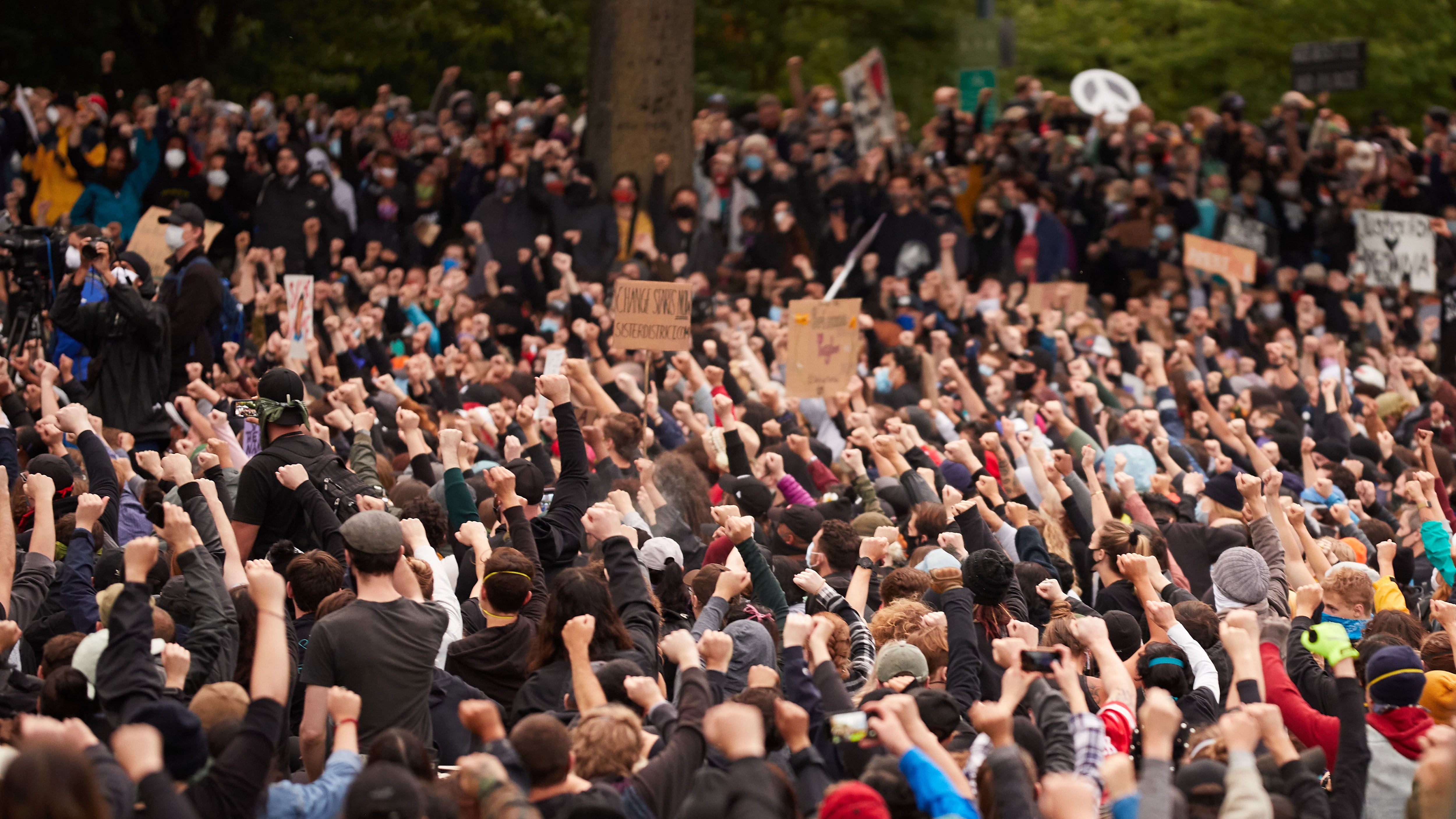At first blush, it might appear almost redundant to make a documentary about Portland's racial justice protests, given that they were inspired, sustained, iconicized, polarized and revealed through the power of video.
But Tipping Point, a feature-length documentary produced by nonprofit concert hall The Old Church, reaches for a deeper, depoliticized look at Portland's spotlight-grabbing reckoning.
"[Social media viewers] don't remember anything but the tear gas, the flash bang and people screaming," says The Old Church executive director Amanda Stark, the documentary's impact producer. "If this is truly the largest civil rights protest in U.S. history, we need to know more about it."
Though it's known primarily as a performance venue, The Old Church extends its mission to platform diverse voices with Tipping Point. With its 18 featured interviews and emphasis on community context, the documentary shares creative DNA and a host—Julianne R. Johnson—with the nonprofit's quarterly We Can Listen series. And director Jon Meyer's months of yet-unseen footage offer new vantages of burgeoning Black leaders, police violence and disagreements among protesters.
Tipping Point, which screens free online Nov. 16 and 17, is an impressively sweeping yet deliberately structured reflection on a summer of chaos. It's carved into implicit chapters like Oregon's history of white supremacy, the horror of tear gas, the live-streaming revolution and the experiences of Black police. In this conceptual flow, the documentary disentangles the unrest while still letting its sources disagree just seconds apart on film.
"We want to humanize the struggle," says Johnson, the film's co-producer and the music director at Portland Community College Sylvania. "These are all people's stories. This is not somebody distant from you; this is you."
With its Black moderator and majority Black interviewees, Tipping Point steadfastly focuses on BIPOC perspectives. To remain on that course, every cut of the film garnered creative feedback from a "focus group" of BIPOC advisors, including veteran documentarian and University of Massachusetts Amherst media and cultural studies professor Sut Jhally and social theorist Rodney Washington Moore, Portland activist Destiny Houston and local community strategist Royal Harris. Johnson's interviews dive deep with local activist artists like Mic Crenshaw and C3 the Guru and young organizers like Alaysia Atkins. Through the 18 conversations, Johnson says she primarily sought the subjects' motivations—what precisely made them return to a volatile struggle night after night?
The answers unfurl more than the filmmakers could've expected, and Tipping Point's most profound moments explore the boundless "why" of the protests over their sometimes unwieldy "what." Interviewees explain themselves via concepts like African principlism, indigenuity and how humans orient themselves in a natural universe.
"We didn't know it would go to the spiritual realm," Stark says. "I don't think anyone else is talking about this stuff right now, especially [regarding] the Portland protests."
For her part, Johnson has spent her entire life steeped in the Black activism of Portland. As a baby, she was held by Martin Luther King Jr. at Vancouver Avenue First Baptist Church. She remembers Stokely Carmichael lending her advice in a North Portland garage. She opened for Maya Angelou at the Schnitz in 2012. Johnson was also, in her estimation, the first Black performer ever to play The Old Church, where the Grammy-nominated vocalist has now been a 30-year staple.
Illuminating Black experiences in America's whitest major city runs through Johnson's life, and she narrates an epilogue in Tipping Point that feels trained directly at a white viewer about to ask, "Well, what should I do now?" Johnson has no shortage of answers.
"I want to help you help yourself. And that's what I think this movie can do," she says. "Wherever they land in the film, they'll launch from there. My biggest plea is, if you're going to start [engaging], be sure you won't stop."
SEE IT: Screening links to Tipping Point are available at theoldchurch.org. It will be available for viewing for 48 hours Monday-Tuesday, Nov. 16-17. Free.

